Food and Water
Discover practical strategies for sourcing, purifying, and storing food and water in survival scenarios.
Survival in extreme situations requires grasping fundamental skills, among which securing food and water is paramount. Nature can be both nurturing and forbidding, and understanding methods to source, purify, and store essentials can significantly influence survival outcomes. This article intends to walk you through these vital aspects, sharing insights that are valuable but humble in their scope.
Understanding Water Needs
Water is a fundamental need. The body’s demand for water can vary depending on climate, physical activity, and individual physiology. Generally, humans can only survive three days without water, making it crucial to prioritize finding a water source in any survival scenario.
Locating Water Sources
In nature, several indicators can guide you to water:
- Follow the Terrain: Water often flows downhill, so valleys and depressions in the landscape are good places to look.
- Vegetation: Lush, green vegetation could indicate a water source nearby.
- Animal Tracks: Tracks that converge often lead to water.
- Morning Dew: In arid environments, collecting dew with a cloth can provide a small but valuable survival resource.
Purifying Water
Never assume water in the wild is safe to drink. Microbial contamination is a real danger. There are simple means to increase safety:
- Boiling: Bringing water to a rolling boil for at least one minute is an effective method to kill many pathogens.
- Filtration: Portable water filters designed for outdoor use can remove debris and some microbes.
- Chemical Purification: Water purification tablets or drops (usually iodine or chlorine-based) can disinfect water, though they often leave a taste.
It’s also helpful to embrace adaptability, using available resources like sunlight for solar water disinfection when traditional methods fall short.
Food in the Wild
Food isn’t as immediate a concern as water, but obtaining nutritious sustenance is crucial for maintaining energy and morale. The basic skills of foraging, hunting, and trapping can provide a foundation for food gathering:
Foraging for Edible Plants
Plants are among the most readily available sources of food in the wild, but foraging comes with risks:
- Educate: Learn to identify a few key edible plants native to the area you might find yourself in. Resources like “Peterson Field Guides” can be invaluable.
- Universal Edibility Test: This is a cautious process for testing unknown plants, though not always reliable, as mishaps can occur without local knowledge.
Hunting and Trapping
This can be more energy-intensive and requires specific skills:
- Fishing: Improvised fishing equipment can include hooks made from bone and lines from plant fibers.
- Trapping: Simple traps like snares can yield small game. Learning to set them efficiently can save energy.
Insects as Food
Many cultures recognize insects as a protein-rich resource. While not universally appealing, insects like crickets, grasshoppers, and certain larvae are nutritious and widely available.
Long-Term Preparedness
For those who wish to be ready for any eventuality, learning about food preservation is valuable:
- Drying and Smoking: These techniques use heat to reduce moisture content and thus the likelihood of spoilage.
- Canning: Requires some equipment, but is effective for long-term storage.
Storing packaged, high-energy foods such as nuts and dried fruits in a survival kit can also provide quick, reliable nourishment.
Conclusion
Preparing to obtain and manage food and water in extreme conditions involves both practical skills and knowledge of the environment. It is an ongoing learning journey, augmented by practice and an openness to learning from both successes and challenges. Your commitment to learning as you go will shape your ability to adapt and thrive, no matter the circumstances. While the information provided here offers a starting point, further exploration and personal experimentation can expand these foundational concepts into a more comprehensive skill set.
For more resources and insights, you may visit scholarly articles on survival skills, or join forums where outdoor enthusiasts share their experiences. Remember, every adventure is a learning opportunity.
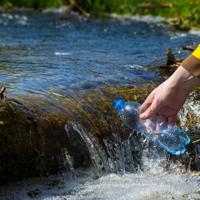
Discover practical methods to find and purify water while navigating the wilderness, essential for any survival situation.
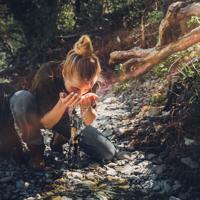
Learn about essential water purification methods for survival. Access to clean drinking water is crucial, and understanding how to purify it is vital for your safety.
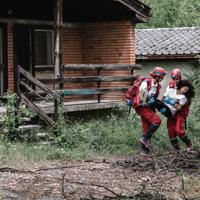
This page explores vital survival skills, emphasizing the importance of mental preparedness, shelter construction, and effective water purification methods.
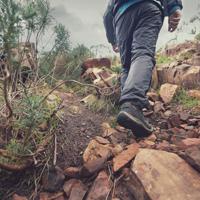
Learn essential wilderness survival skills and knowledge for thriving in untamed environments.
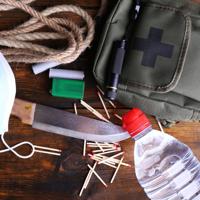
Learn how to effectively store water for emergencies to ensure you have a safe supply when it matters most.

Learn essential food storage techniques for preparedness and a reliable food supply.
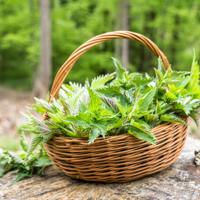
Learn how to identify and gather edible wild plants to enhance your survival skills and experience nature more fully.
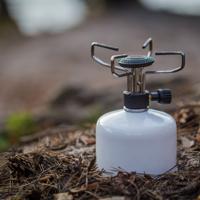
Learn essential techniques and materials for starting a fire in survival scenarios, enhancing your preparedness and confidence in the outdoors.